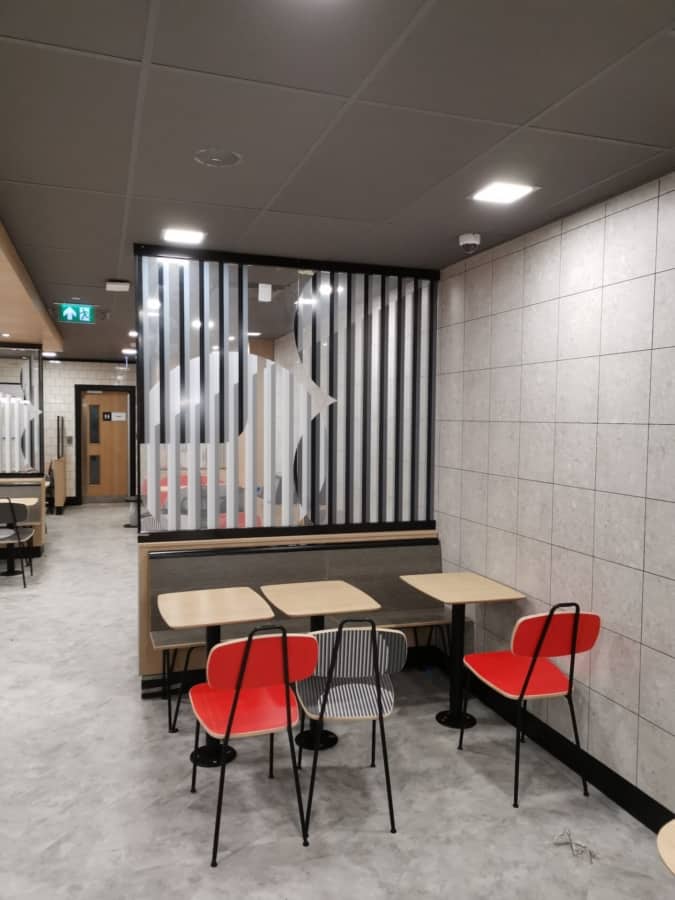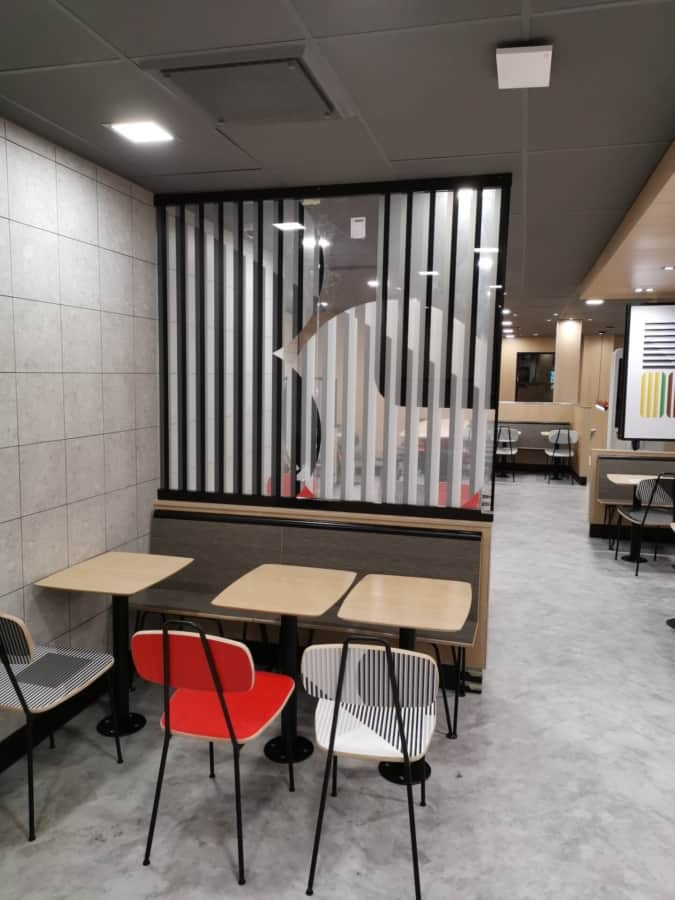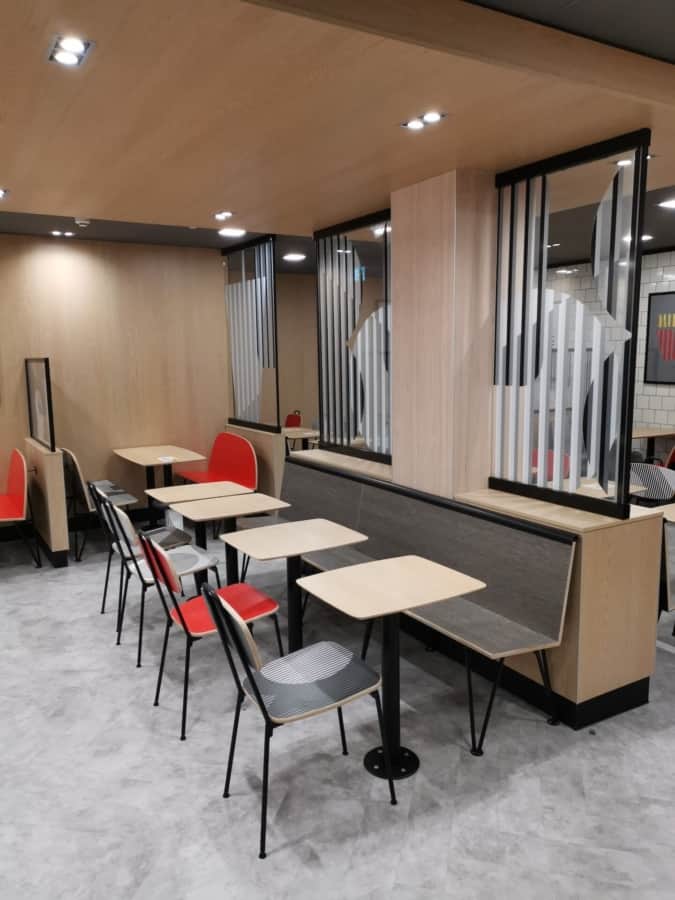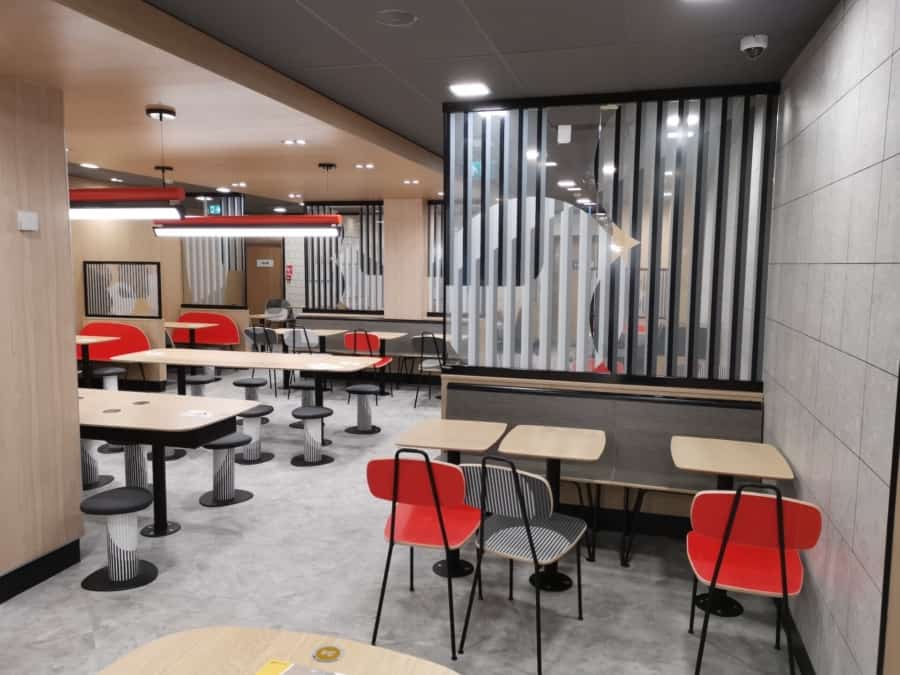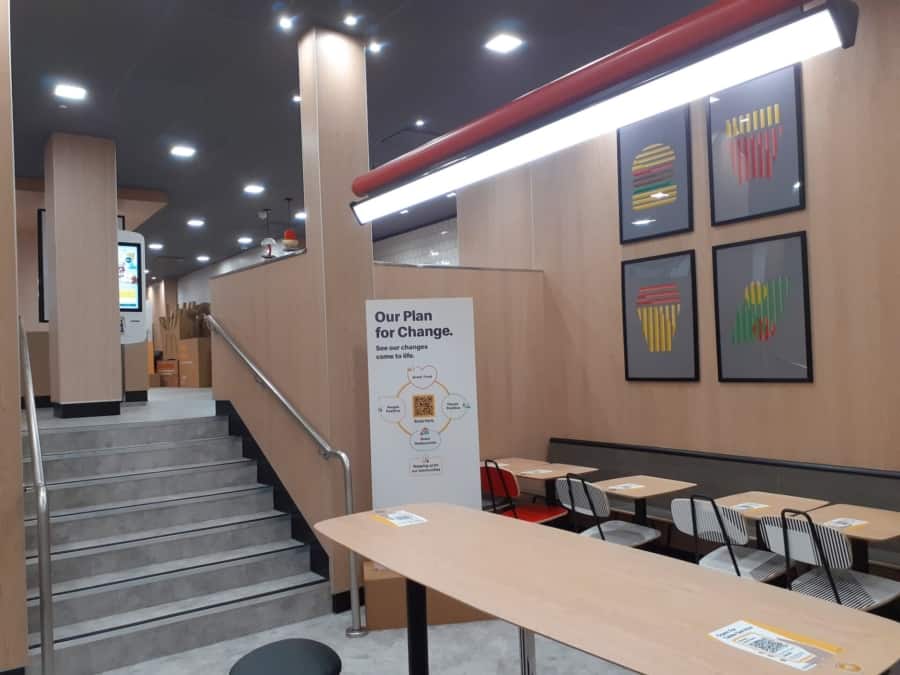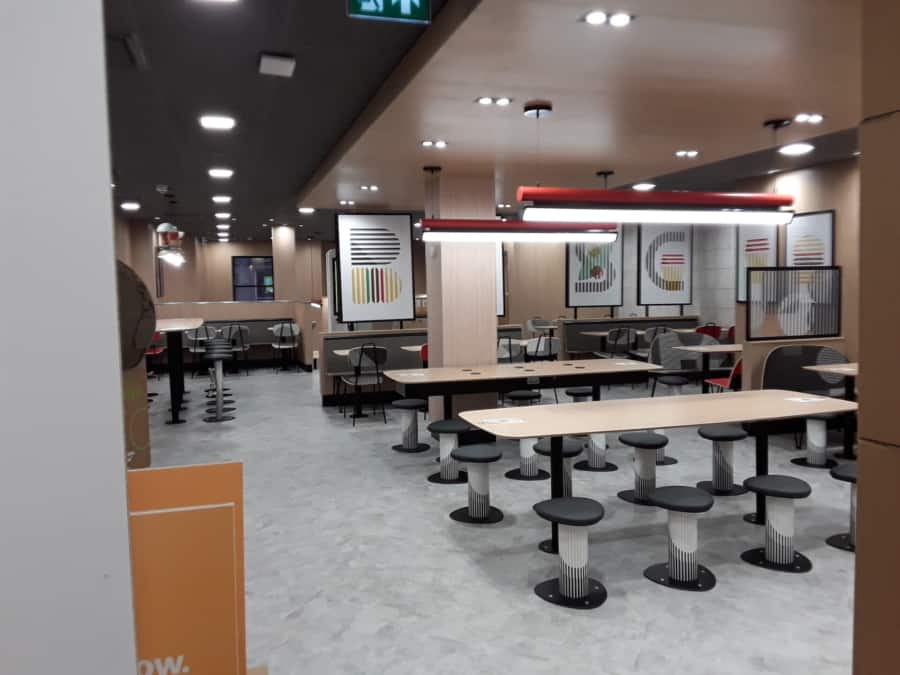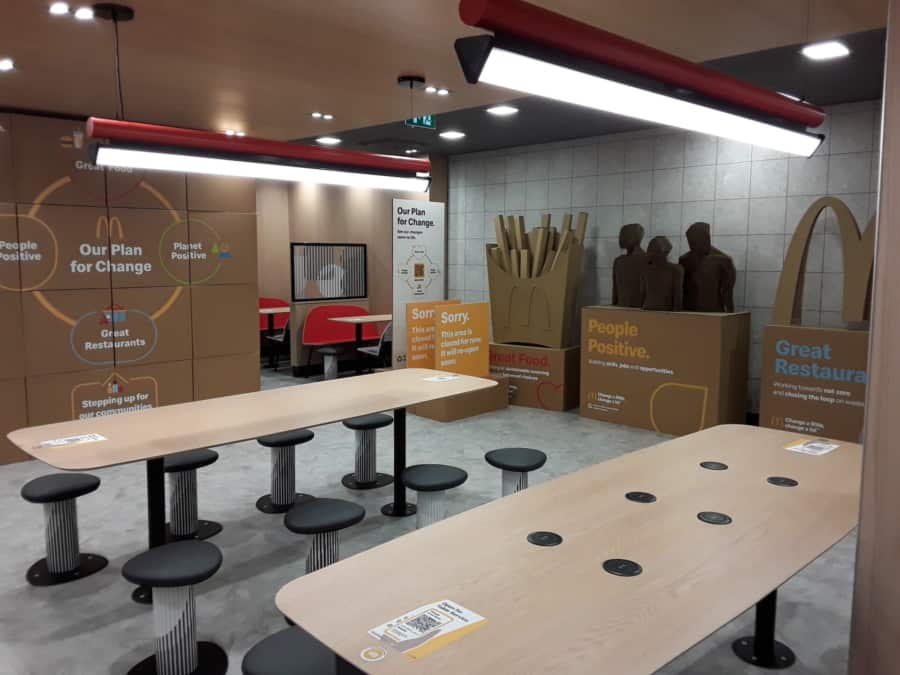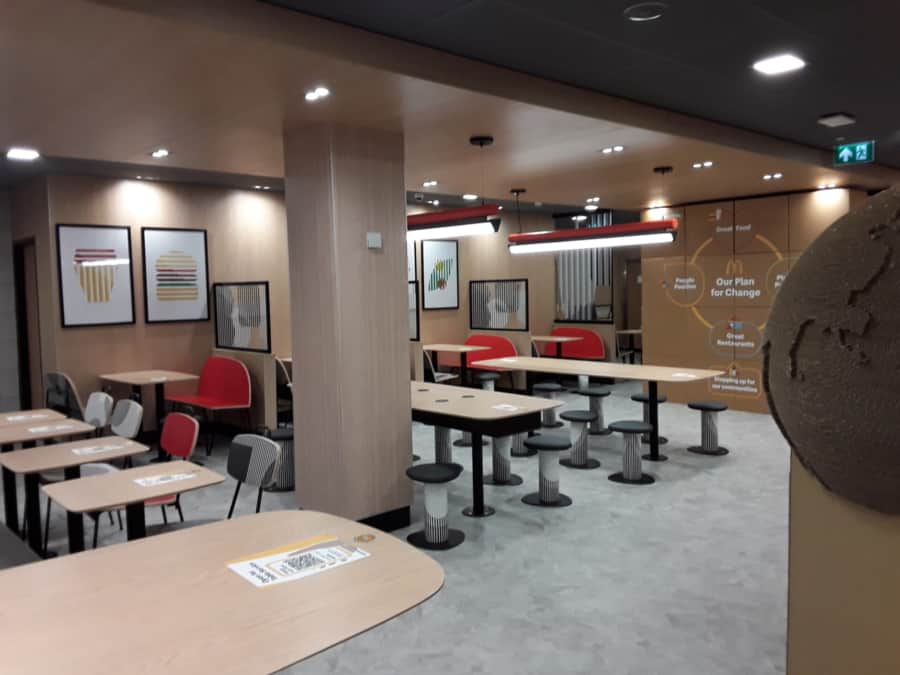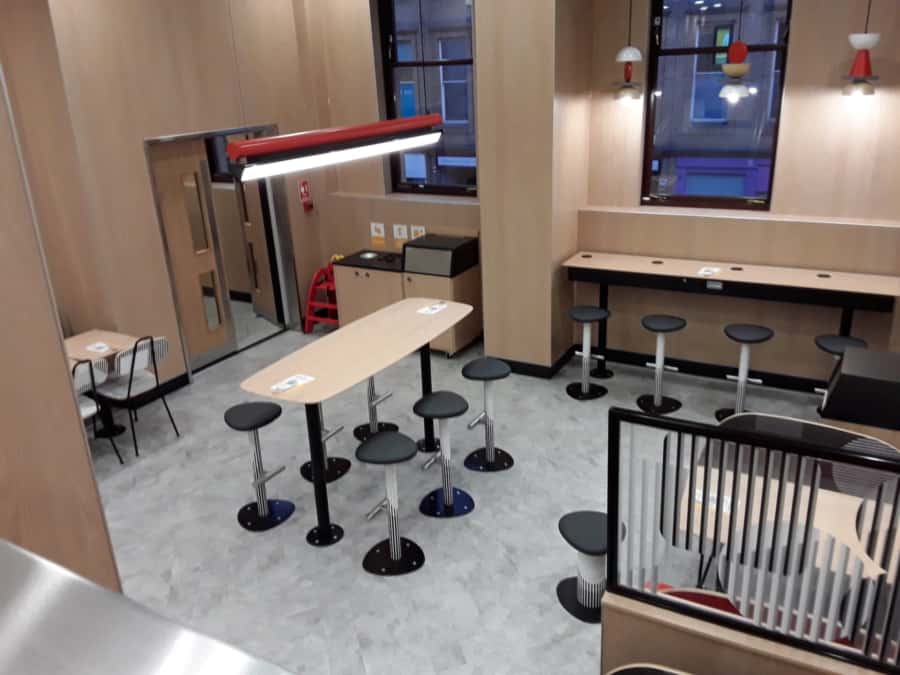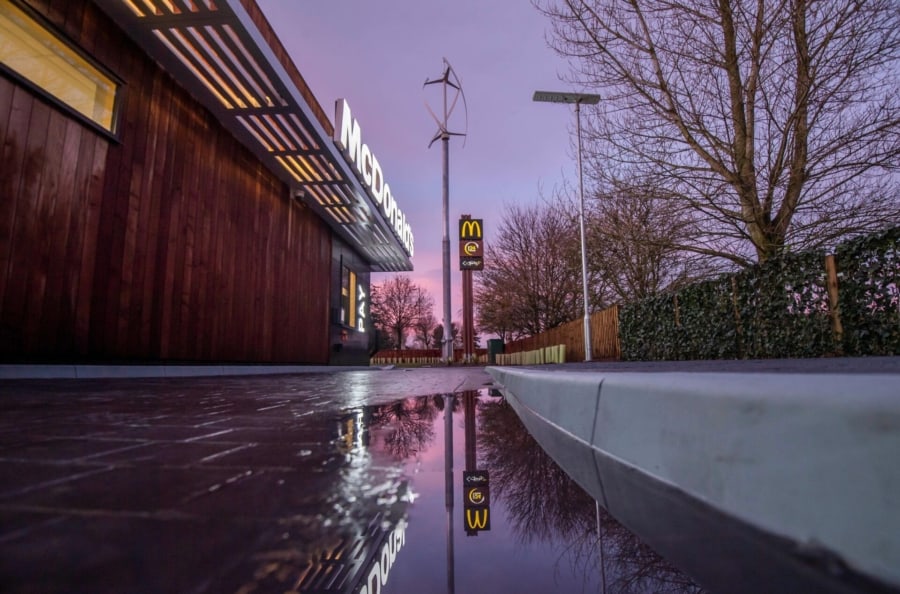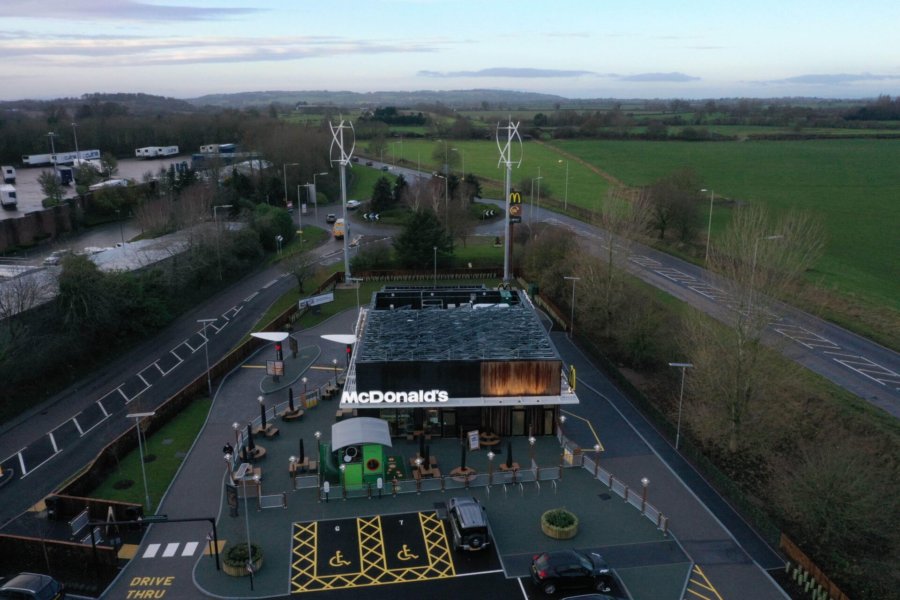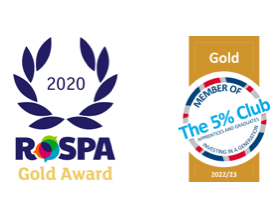IN a world that is increasingly relying on sustainable energy sources, Pacific are working with clients, suppliers and on their own initiative to take steps to tackle global warming and pollution.
The planet currently gets about a third of its energy from “clean” sources, and as natural gas, coal and nuclear output declines, renewables will become increasingly important.
The UK and Scottish governments are legally committed to slash reliance on energy from fossil fuels, which is incentivising businesses to do all they can to drastically decrease or eliminate their carbon footprint.
Pacific’s commitment to sustainability and the environment is directed through our environmental and sustainability policies and our ISO 14001 accredited environmental management system.
As part of the company’s longstanding partnership with McDonald’s, Pacific delivered an extensive refurbishment of their Sauchiehall Street restaurant in Glasgow.
This project was a pilot scheme in the fast-food chain’s Plan For Change. Among the initiatives piloted on this project were the use of recycled furniture across in the restaurant and the installation of signage made from up-cycled coffee grounds that were left over from McDonald’s hot-beverage preparations.
Recycled car tyres, electronics and white goods also provided source material for other fixtures and fittings, as did sheep’s wool, kerb stones from plastic bottles and graphics paste from potato starch.
All this is in line with their commitment to “close the loop on waste”. Pacific is continuing to support McDonald’s on the roll-out of similar initiatives across their estate.
Pacific also installed signage made from up-cycled coffee grounds that were left over from McDonald’s hot-beverage preparations.
Even McDonald’s move to modular construction methods – which sees components and fittings assembled off-site for rapid installation on-site – is helping the planet by reducing waste.
McDonald’s commitment to sustainable development via the Plan For Change has resulted in the construction of a new-build restaurant in Market Drayton, Shropshire, that acts as a testing ground for green technologies.
It is the first restaurant certified to the UKGBC Net Zero Standard in the UK and Ireland. Lessons learned here will serve as a blueprint for future new-build outlets and help the company deliver on their goal of all their restaurants being “net zero” by 2030.
Closer to home, Pacific’s new bespoke joinery workshop is supporting the need for renewable technologies and processes to slow down global warming.
The 5,000 sq ft workshop is heated by briquettes created from its waste output – plus our recent investment in modern tooling helps reduce unnecessary waste.
In addition, all materials are sourced from sustainable Forestry Stewardship Council-certified forests with full chains of custody. Less waste results in lower operating costs – win -win.
We also monitor energy and water use in the workshop and in our main office to keep our eco-friendly credentials healthy – plus we have fleet of Electric Vehicles, including vans and office-located chargers.
Out on live project locations, we have reduced our reliance on fossil fuel-burning generators and where possible we use grid power to drive plant and hand tools.
Just-in-time deliveries and clever inventorisation help keep levels of waste, packaging and returns at low levels.
We also handle the disposal of downtakings with great care, segregating waste and reusing it where possible, helping to promote a circular economy.
Other aspects of our drive to reduce our footprint include better all-round recycling in our office; environmental and social governance; and the promotion of better behaviours such as the use of public transport, car sharing and park and ride facilities.
All of the commitments which Pacific have made demonstrate the company’s professionalism, sense of responsibility and dedication to the achievable goal of a sustainable economy and improved natural environment for everyone.
